Woman Comes Under Fire For Visiting "Problem Child" Cat She Surrendered To Shelter
If you take time to look around, you'll find that cats are the most popular pets. In fact, one in three families in the Western world has a cat as a pet.
Furthermore, many of these households have two or three cats! The OP of today's story has six cats.
Just as cats are the most popular pets, they are also the most frequently surrendered pets at shelters across the nation. You see, owning a cat can be costly.
In addition to the regular expenditures for food, supplies, and medical care like vaccines and wellness checkups, there's a good chance that other costs will arise. Additionally, cats who display undesirable characteristics are often surrendered.
These could involve destructive scratching and other "kitten-like" activities, but they could also include harder-to-control behaviors. The OP made the very difficult decision to return one of their cats, Eclair, to the shelter.
He was always the problem child among their six cats, and he has been on Prozac for years. Recently, Eclair began targeting one of the other cats, so she ultimately figured he would have better luck finding a new home at a shelter.
When they surrendered him, a staff member informed them that they could come to visit him, volunteer, and generally be involved. This soon became a problem, and you can find out how as you read the full story below.
The OP writes

Mina hid in the kitchen cupboard all the time and stopped using the litter box
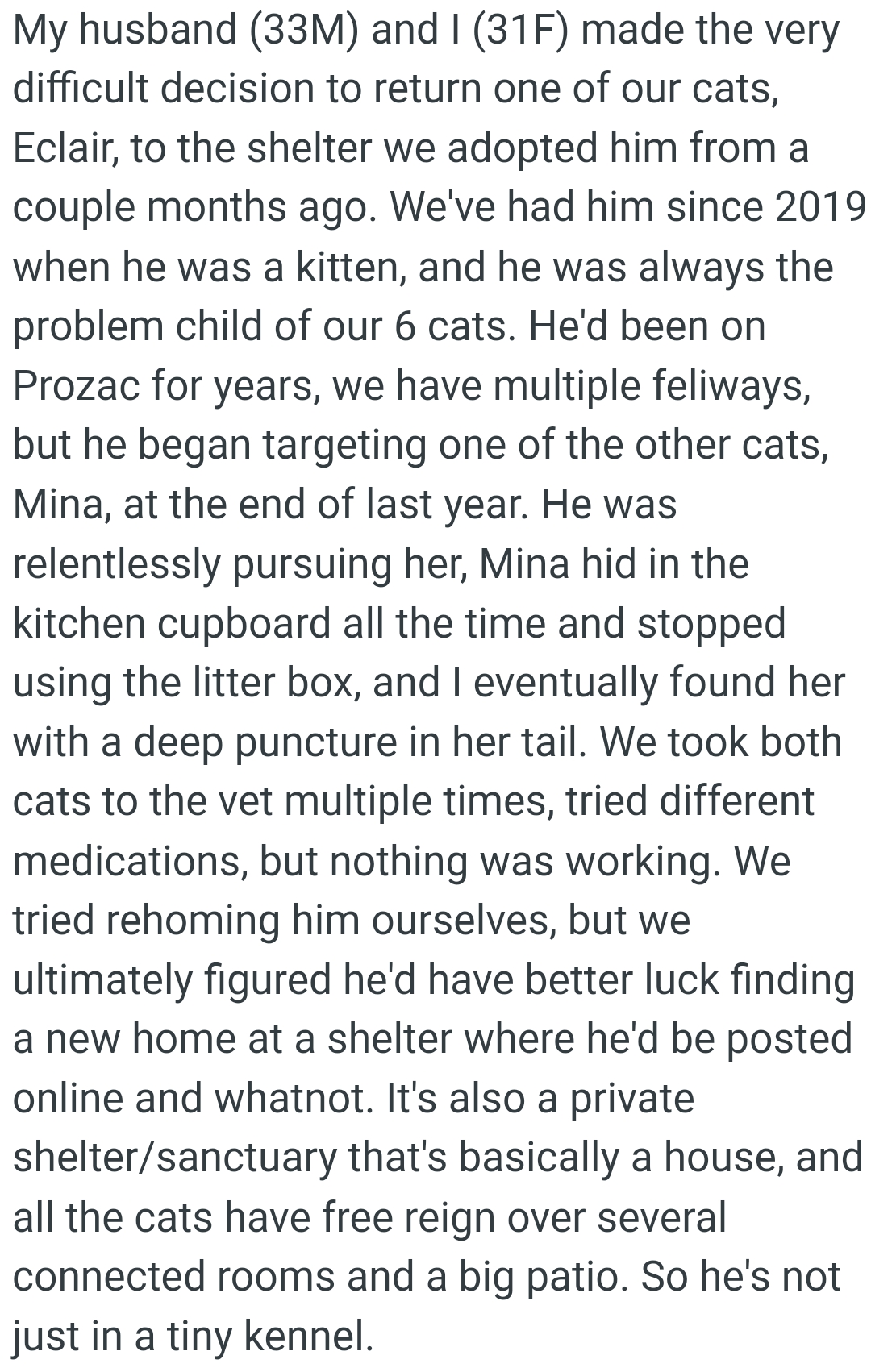
Understanding Attachment and Loss
Dr. Michelle Robinson, a clinical psychologist at Harvard Medical School, discusses how attachments to pets can mimic human attachment styles.
Her research shows that when individuals surrender pets, they often experience a profound sense of loss, similar to losing a family member.
This emotional response can lead to guilt and conflicted feelings about returning to see the pet after surrendering.
OP says the actual adoption portion of the website doesn't even work on mobile
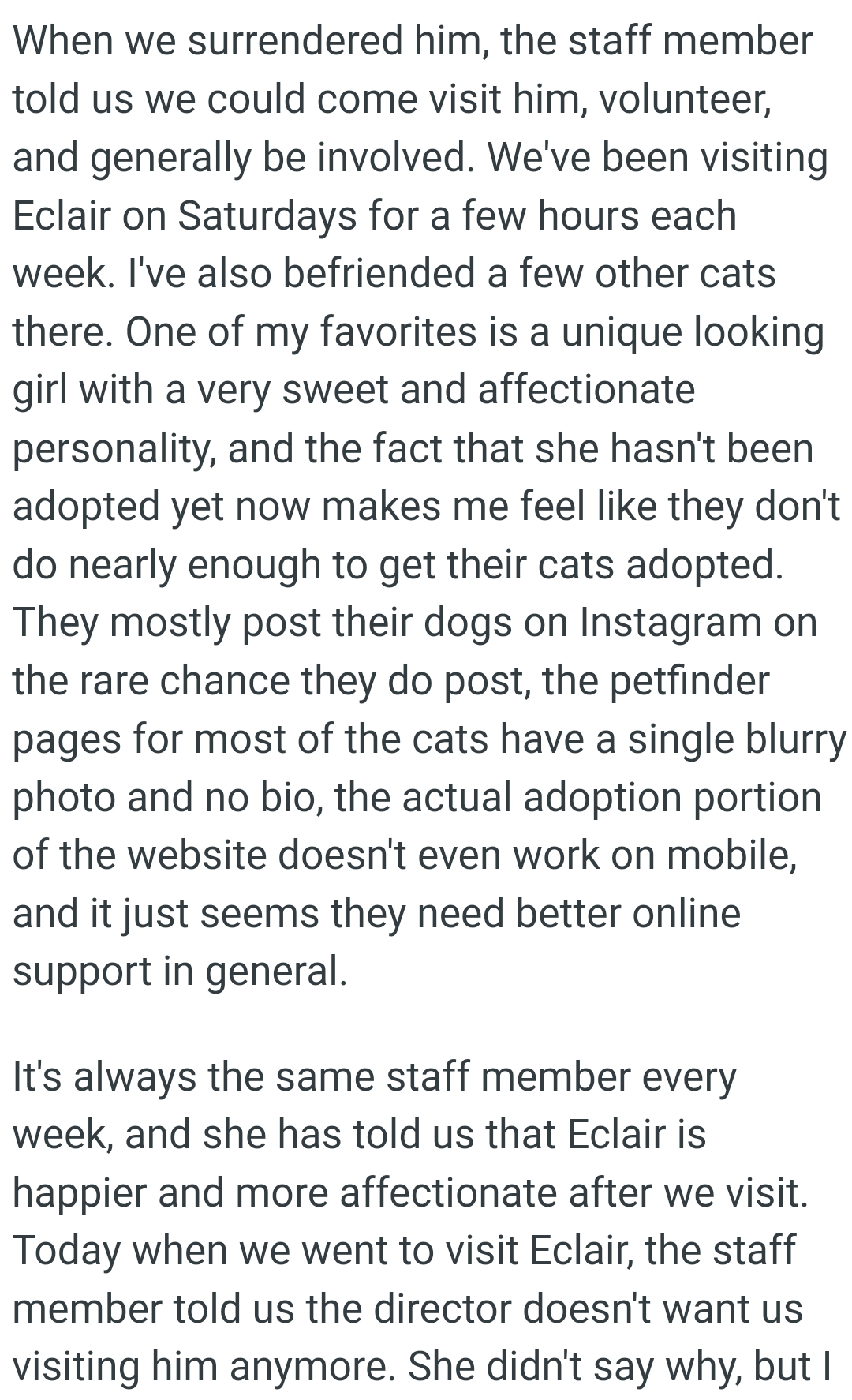
The OP has worked with animals before, but she doesn't have experience with adoptable cats
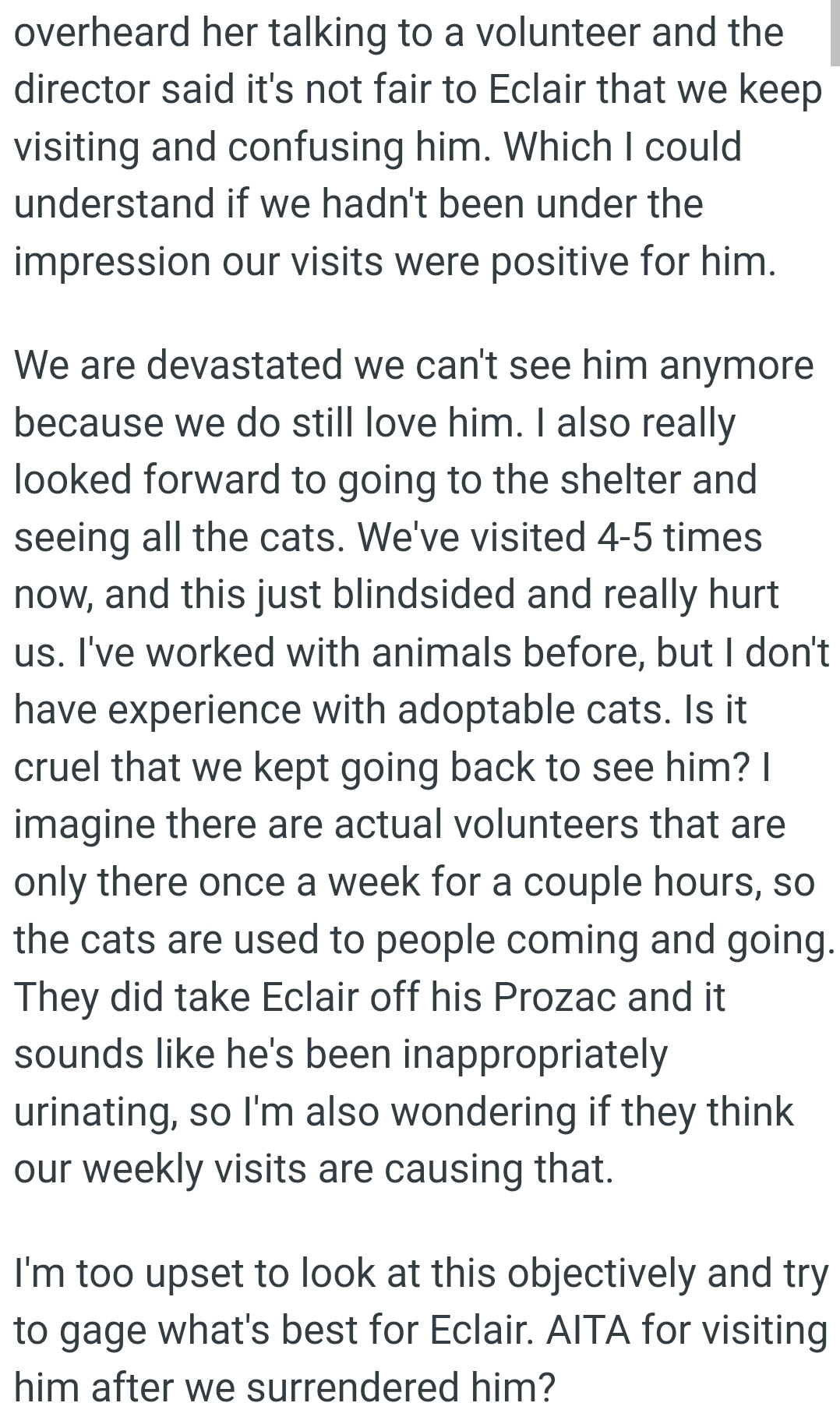
OP has offered the following explanation for why they think they might be the AH:
- I visited a cat I surrendered at the shelter, and the director stated she doesn't want me visiting anymore. 2) I might be the AH for visiting my cat after I surrendered him, or the director might be the asshole for banning me from visiting him.
Comments from other Redditors roll in...
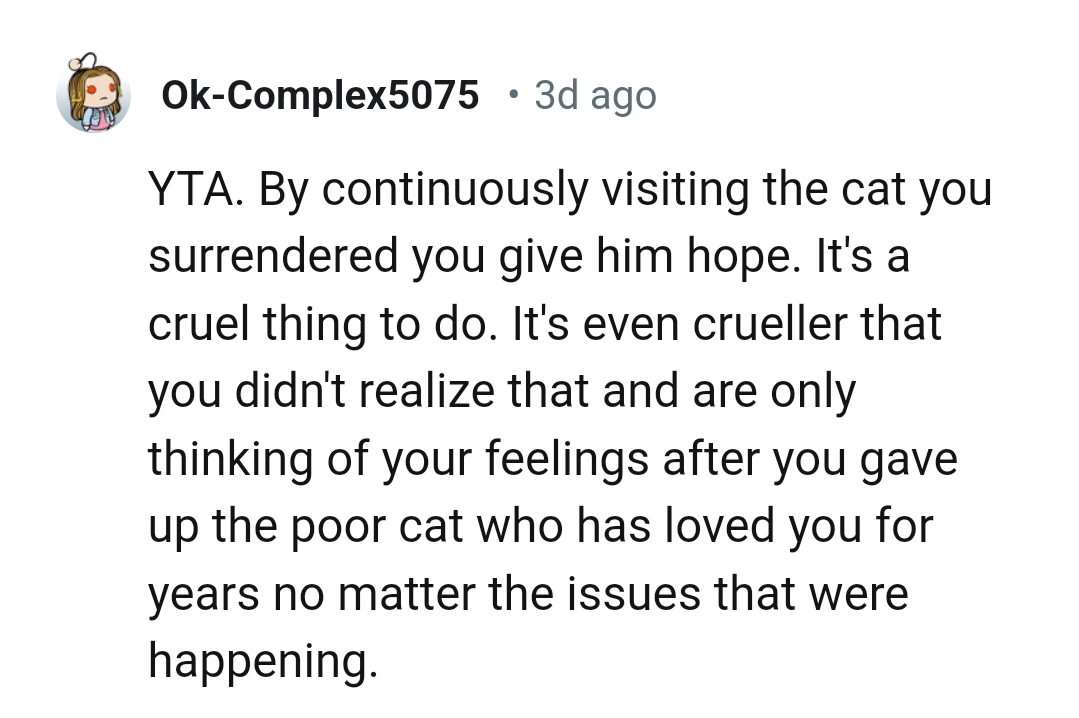
No more cat take in

Psychological studies indicate that returning to a surrendered pet can evoke complex emotions, including guilt and longing. As Dr. Ramani Durvasula, a clinical psychologist, states, "The emotional ties we have with our pets can lead to feelings of abandonment and regret when we part ways." These conflicting emotions can complicate the grieving process and impact mental well-being. For further insights, visit Dr. Durvasula's professional website.
Visiting the cat
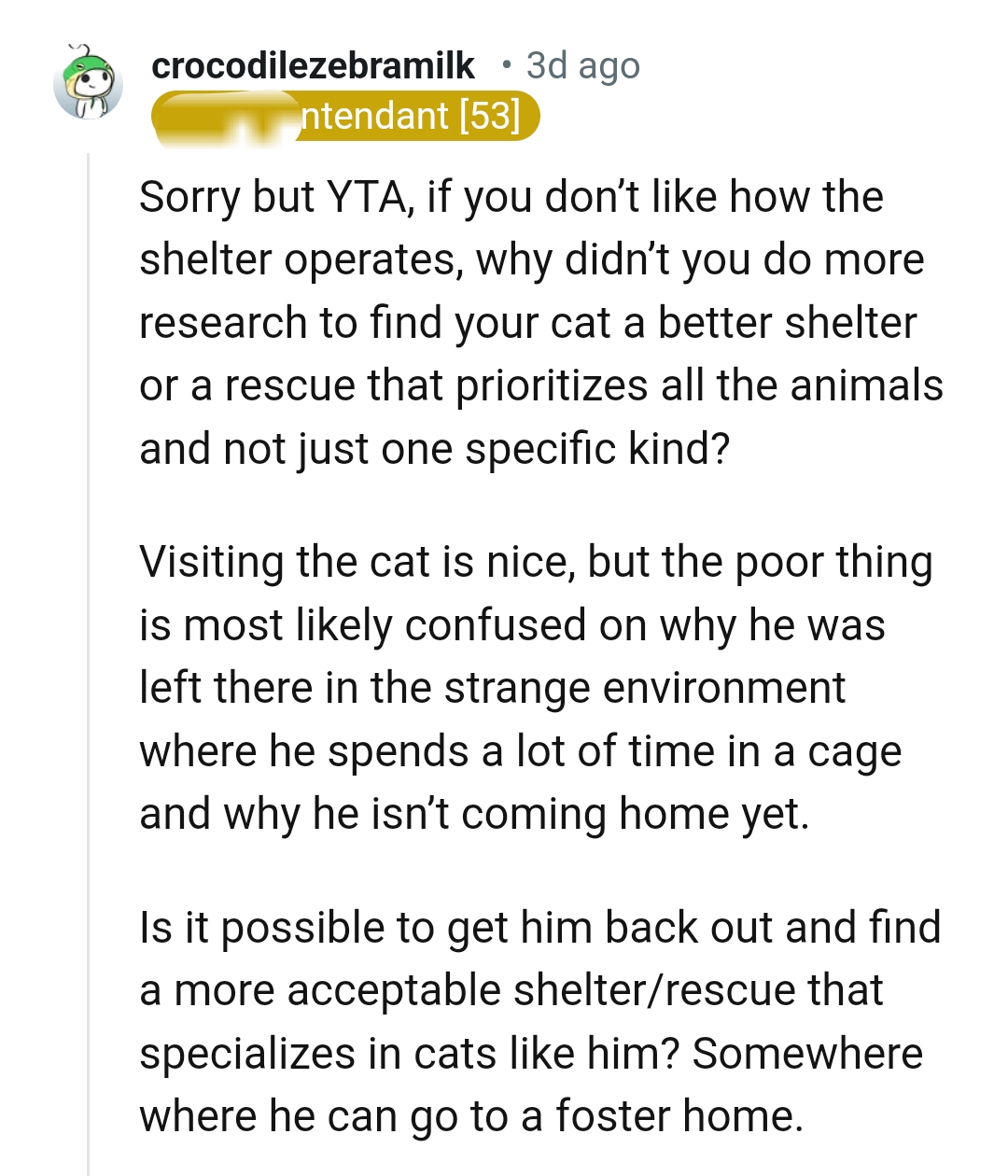
A puncture wound can heal
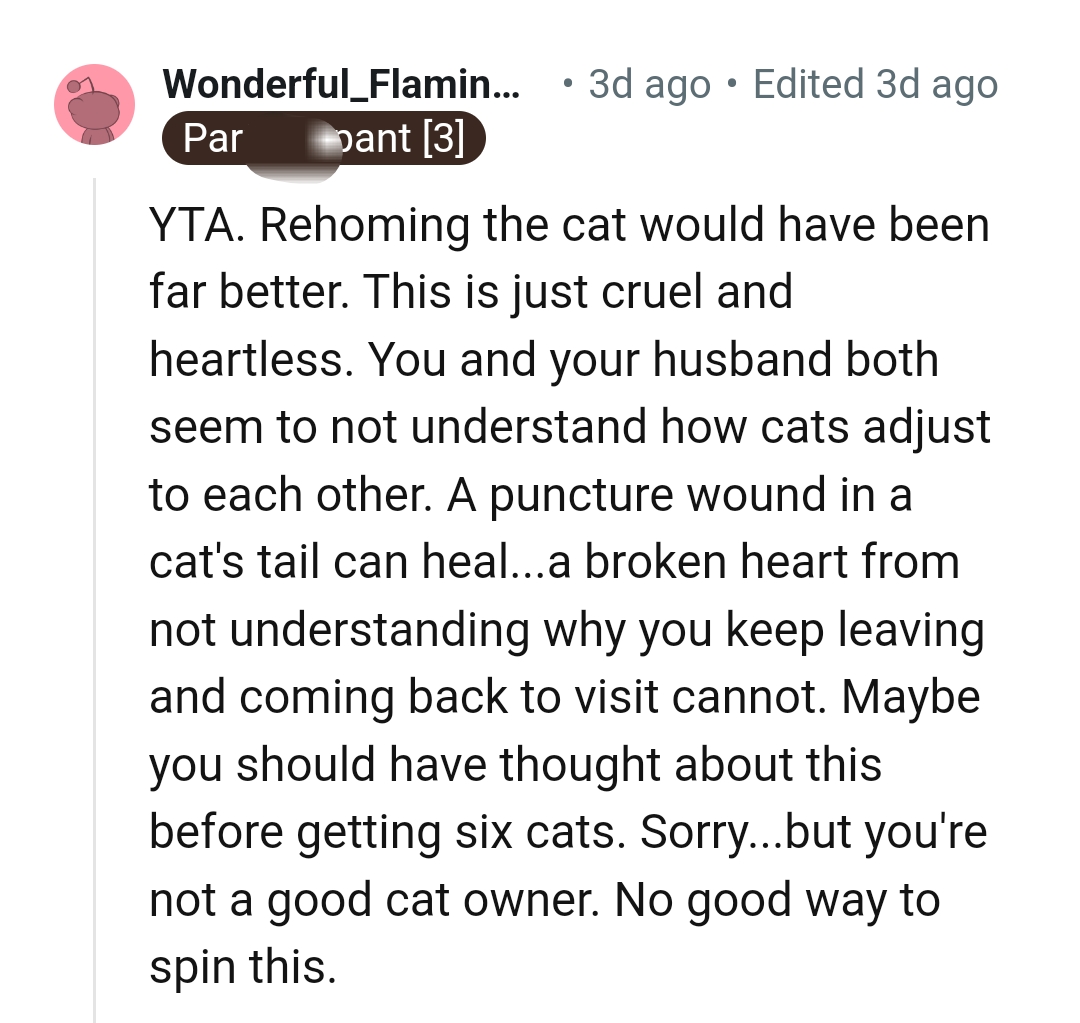
The OP gives more details in the comments
Cats should not bite each other as deeply as he bit her; that's a big issue. We had bloodwork done on both of them, tried medicating both of them, but nothing worked. I wanted to rehome him, but he should be an only cat, and everyone we know who wants a cat already has one. I was terrified of him hurting Mina again, and she was living in fear of him constantly.
And the comments continue...
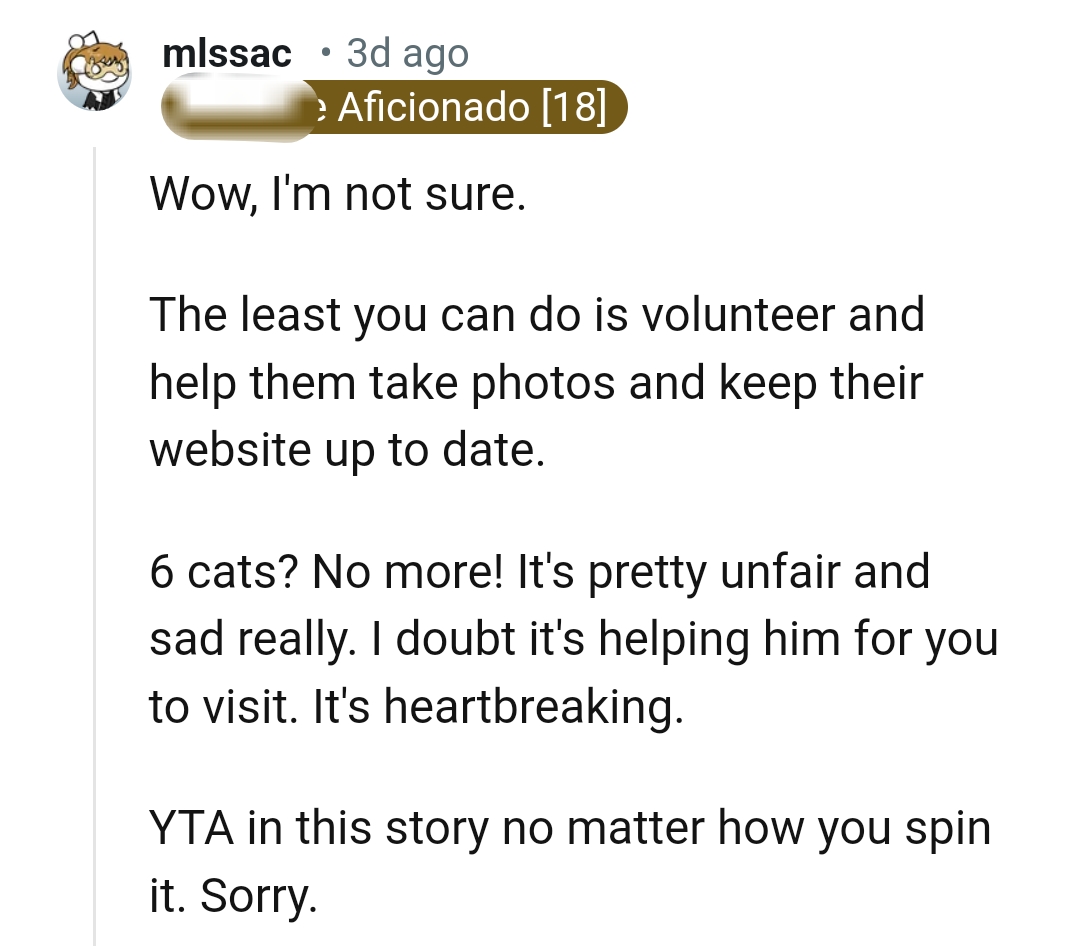
Being a hoarder

The Role of Guilt in Emotional Responses
Research by Dr. Esther Perel, a renowned couples therapist, indicates that guilt is a prevalent emotional response in situations of loss and abandonment. She notes, "When we surrender a pet, we often carry the weight of responsibility for their well-being, which can intensify feelings of guilt." Individuals frequently struggle with these emotions, particularly during the surrender process. Understanding and acknowledging these feelings is essential for processing grief and facilitating healing, as emphasized by Dr. Sonja Lyubomirsky, a happiness researcher who states, "Recognizing our emotional responses is the first step toward emotional recovery."
The OP gave him up
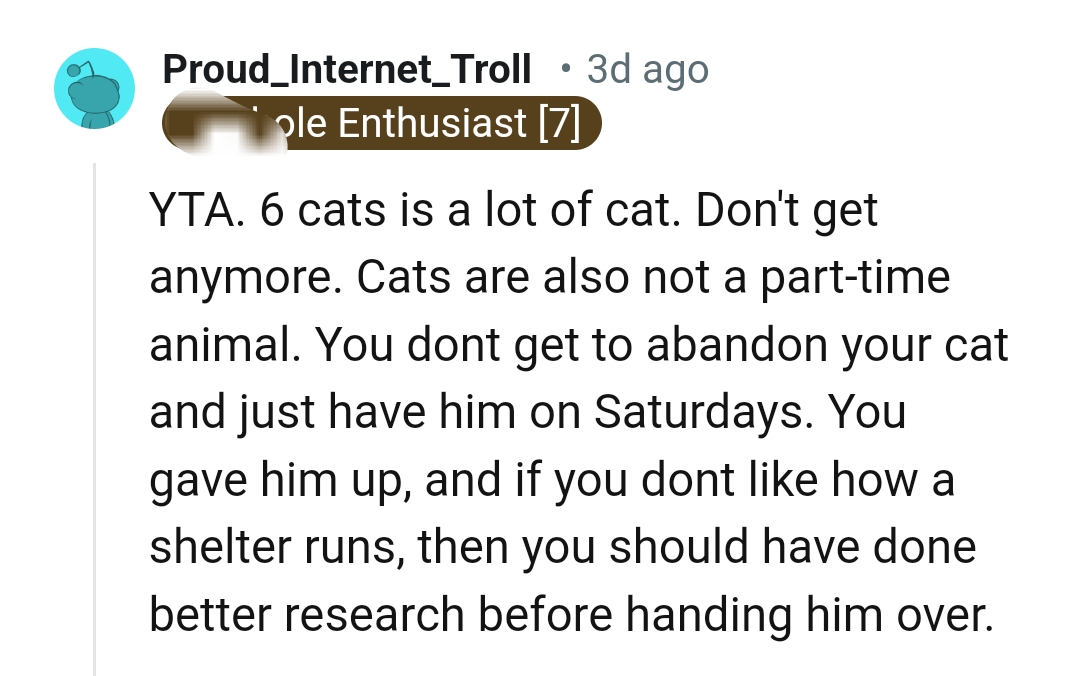
This is not about you
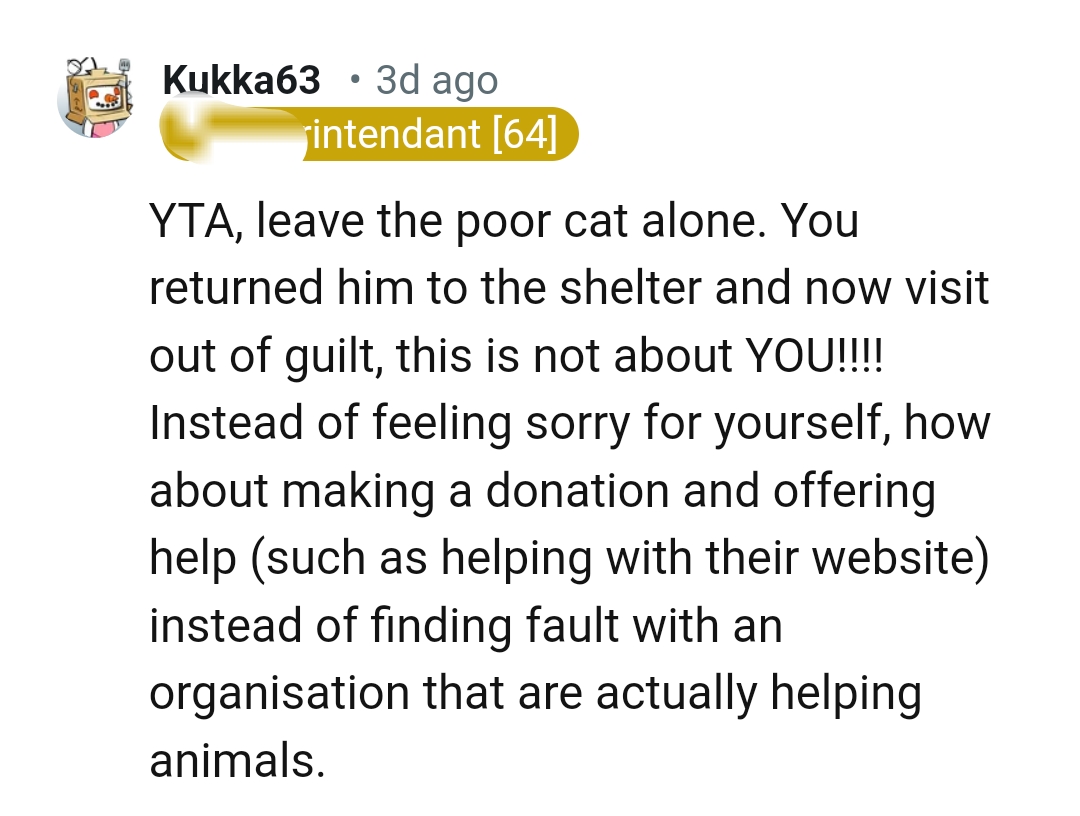
To cope with these feelings, individuals are encouraged to acknowledge their emotions and seek support from others who understand their situation.
Engaging in supportive communities or counseling can provide validation and facilitate the grieving process.
Research highlights that shared experiences can help individuals navigate complex feelings and foster healing.
Psychological Analysis
This situation reflects the intense emotional ties that can develop between pets and their owners.
We believe that addressing feelings of guilt and loss is critical for those navigating the aftermath of surrendering a pet.
Analysis generated by AI
Analysis & Alternative Approaches
The emotional complexities surrounding pet surrender highlight the significant attachments individuals form with their animals.
Understanding the dynamics of guilt and loss is essential in navigating these experiences.
Ultimately, fostering connection and seeking support can aid in healing from these difficult emotional processes.
OP says that the cats at the shelter live in lovely facilities, but they are typically in financial hardship and are so hidden away that you wouldn't even know they were there. Redditors mentioned that by volunteering, OP and her partner had the chance to try to improve a few things at the shelter, but they chose to remain silent.
Of course, the OP was declared the AH, and that's where we wrap things up.
Navigating Guilt and Healing
Experts suggest that developing a narrative around the surrender can help individuals process their emotions more effectively.
Writing about one's experience or joining support groups can facilitate emotional expression and healing.
Recognizing that guilt is a common response can help individuals feel less isolated in their experience.



